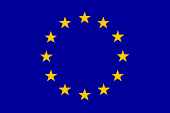
Rethinking scholarship, education, and institutions for an open, networked era
#TomorrowsUni on twitter
March 8 (evening) - March 9 (day), 2017
Big 10 Conference Center
Rosemont, IL
In the 21st Century, research is increasingly data- and computation-driven. Partly due to this trend, researchers, funders, and the larger community today emphasize openness and reproducibility.
"Imagining Tomorrow's University" is an NIH- and NSF-funded one-day, invitation-only workshop where researchers who practice open science and key university administrators will come together to start a new dialog.
The research world has changed, and the university needs to change too—but how? How should it adapt its structure, mission, infrastructure, education, recruitment plans, etc.? Do we need new educational programs? New disciplines or new departments? How can universities recognize the value in new types of research outputs, such as software and data? Does research staffing need to change? Do research data engineers or research software engineers have a place? What are different measures of success for faculty active in open science/open research?
The crucial question is: how do universities make themselves competitive to attract the best students, staff, and faculty in this new world? The workshop participants are summoned to reimagine scholarship, education, and institutions for an open, networked era. As a result, university leaders will be awakened to new opportunities to create value and serve society.
The output of this workshop is envisioned to be a set of principles for how universities can thrive in the new world.
In advance of the workshop
university leaders will be asked to complete a short survey about their current experiences, both positive and negative
and
early-career research invitees will be asked to submit short white papers on some of the following topics:
What is your two sentence definition of open science (or open research)?
Why is open science important for transforming research and learning?
How can open science increase the societal impact of university research?
How is open science part of, and important for your own research, teaching, and service agendas?
What are the important activities, structures, etc. that have supported you in pursuing open science?
What are the major technical, organizational, social, or cultural challenges you face, particularly as related to openness and sharing within your university and academia?
If you had a senior leadership role in a university, what would you do to promote change and improve your university?
What $10M or more, risky and potentially transformative, big idea research proposal would you be writing if you had the right open science resources, and institutional support?
The survey results and the white papers will be used to propose initial topics of discussion that will lead to inputs into the principles document.
Funding provided by the National Institutes of Health and the National Science Foundation.
 Unless otherwise stated, all materials created by the FOSTER consortium are licensed under a CREATIVE COMMONS
ATTRIBUTION 4.0 INTERNATIONAL LICENSE.
Unless otherwise stated, all materials created by the FOSTER consortium are licensed under a CREATIVE COMMONS
ATTRIBUTION 4.0 INTERNATIONAL LICENSE.
 This project has received funding from the European Union’s Seventh Framework Programme for research,
technological development and demonstration under grant agreement no 612425.
This project has received funding from the European Union’s Seventh Framework Programme for research,
technological development and demonstration under grant agreement no 612425.